The Man Responsible For Tata Group—Jamsetji Tata
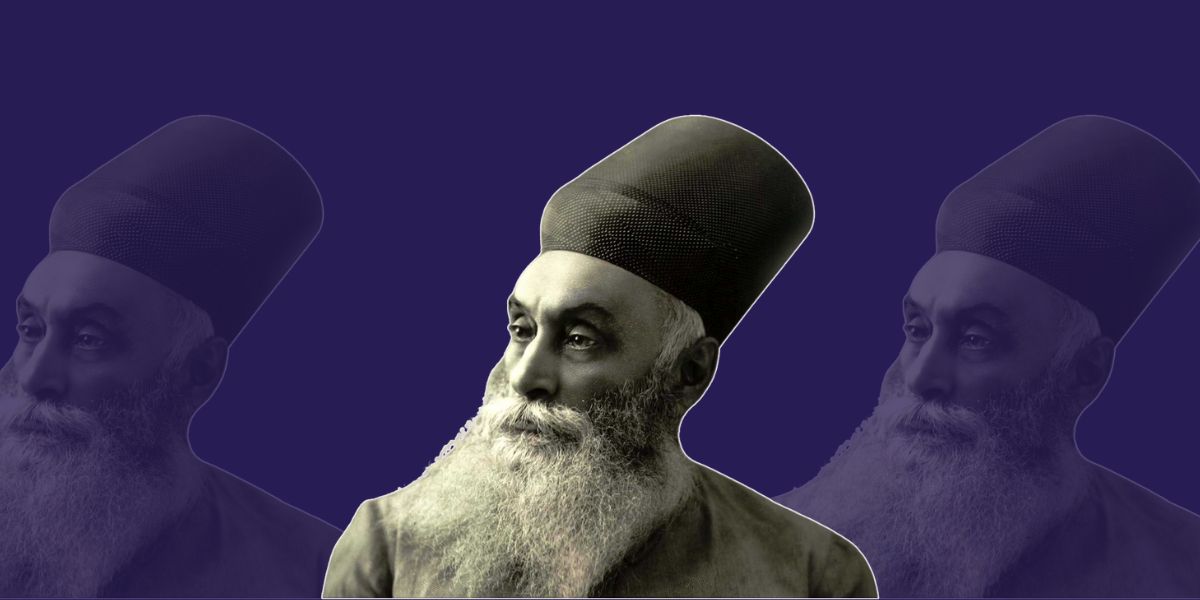
Nowadays, Tata means trust, but here we talk about where this legacy comes from: the man, the industrialist, the philosopher—Jamsetji Tata. He was the founder of the Tata Group. Also known as the Father of Indian Industry. Jamshedji Nusserwanji Tata (3 March 1839–19 May 1904) was born into the Parsi family of Navsari, Gujrat. He was the first businessman from his family to start an export trading firm in Mumbai.
Here comes the day when Tata Group was established in 1868 as a trading company. Later, he entered the textile business by purchasing an abandoned oil mill and turning it into a cotton mill. His ideologies and innovative strategies helped India build the first hotel, The Taj Mahal Hotel, in Mumbai, and the Indian Institute of Science. Because of his immense influence in the business sector, Jawaharlal Nehru called Tata a “one-man planning commission.”
Several surveys and ranking lists have named him the best philanthropist of the century. Together with a long-lasting influence on India’s economic and social scene, Tata left behind the city of Jamshedpur, which bears his name because he founded the city of Jamshedpur. His sons, Dorabji Tata and Ratanji Tata, carry his legacy. Tata Group is forever working to make India proud.
Quotes by Jamsetji Tata

Highlights the importance of fostering talent within a society. Imagine a gardener who not only waters every plant but also pays special attention to the most promising flowers, helping them bloom fully. Just like the gardener’s garden, a nation flourishes when its most gifted individuals are given the opportunity to reach their highest potential and, in turn, serve their community effectively.

The quote draws a picture of thoughtful urban planning, where the infrastructure not only caters to practicality with wide streets and shade but also to the cultural and recreational needs of a diverse populace. It’s like crafting a city as a canvas for living, where every stroke accounts for leisure in the form of parks and sports, and every colour represents the various religious structures, creating a mosaic of inclusivity and community well-being.
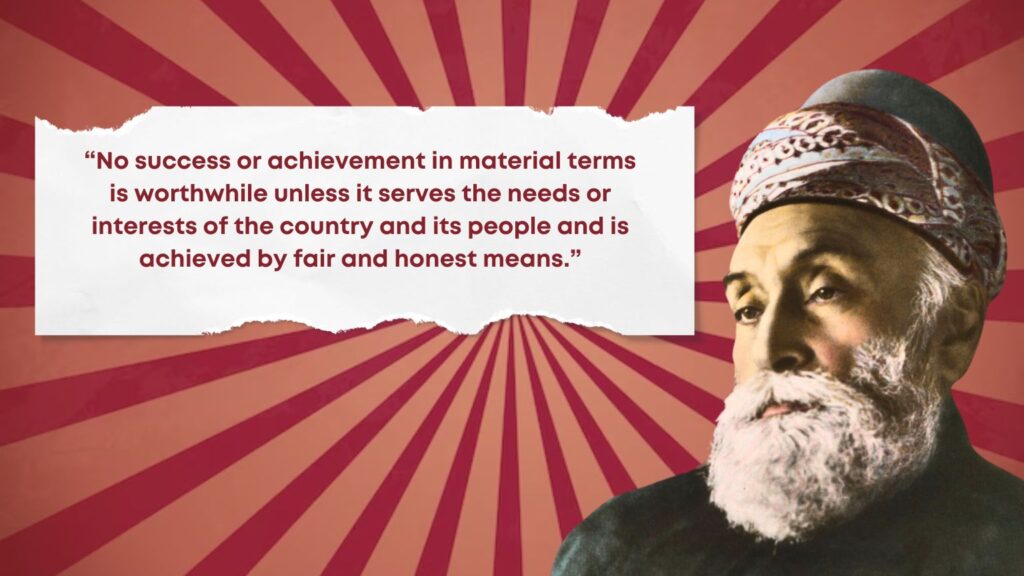
The phrase highlights the fact that real success involves more than merely accumulating cash or positions. It’s comparable to a farmer who works his land not just to get money but also to feed his people and maintain his nation. When one achieves success with integrity and in alignment with the well-being of the populace, it holds the utmost significance and nobility.
Inspirational Quotes by Jamsetji Tata
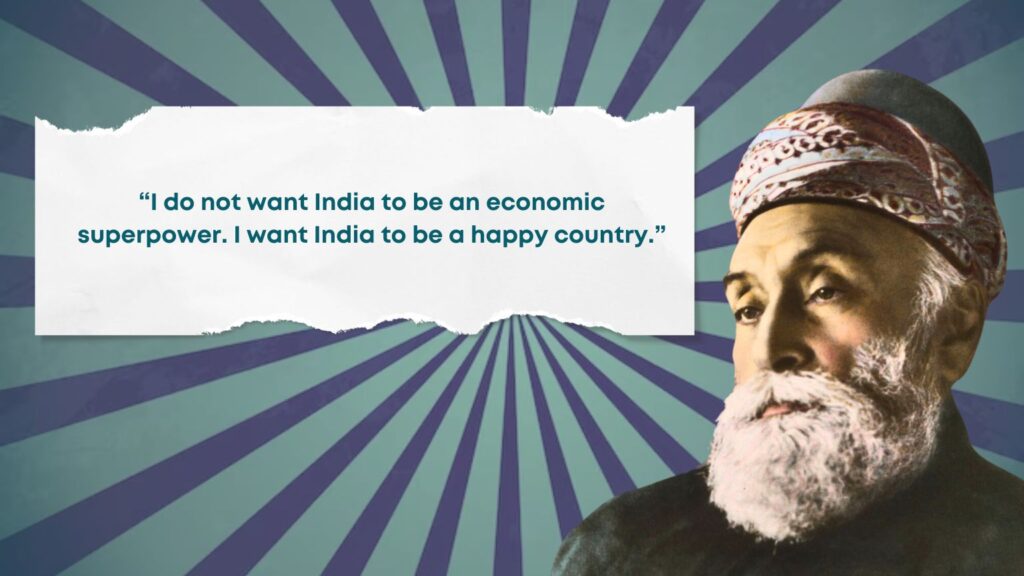
It emphasizes the value of happiness and fulfillment over material success. It’s like deciding between a big, quiet house and a smaller, more intimate home full of love and joy. It implies that a nation’s greatness lies not only in its GDP but also in the contentment and welfare of its citizens.
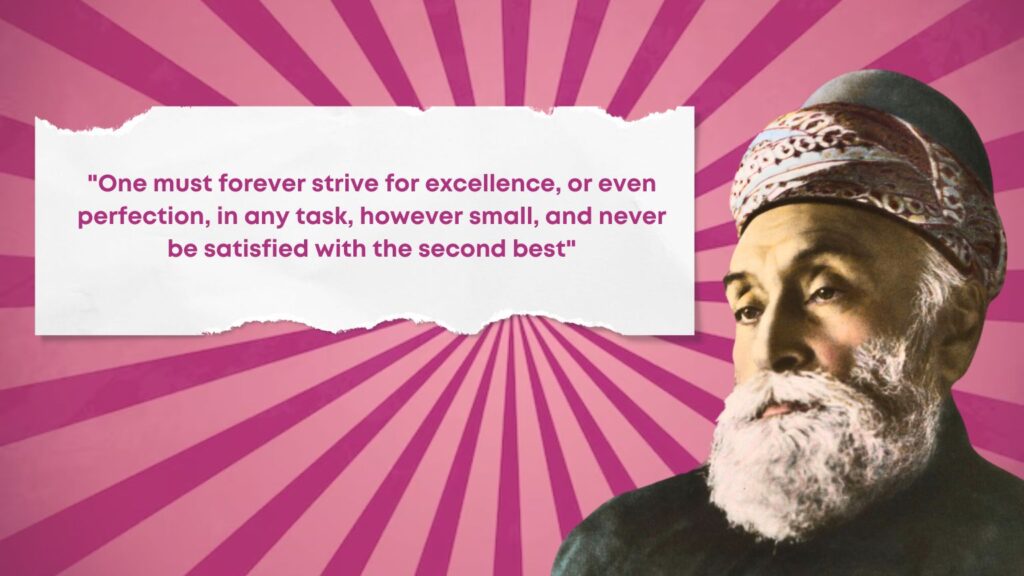
In all we do, the adage exhorts us to aim for the greatest standards. It’s comparable to a chef who, even while preparing a basic meal, utilizes the best ingredients and dedicates ample time to perfecting the recipe, resulting in consistently delicious dishes. In the same vein, we urge ourselves to put our all into every endeavor, no matter how big or small, constantly aiming for greatness rather than mediocrity.
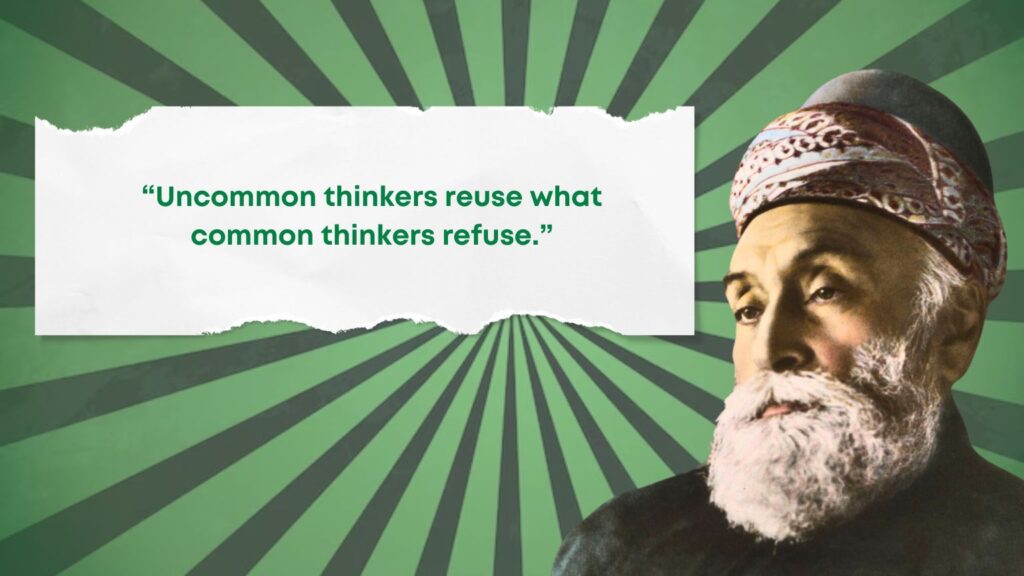
The quote encapsulates the idea that innovation often comes from reimagining what’s been discarded or overlooked. It’s like a chef who takes leftover ingredients, considered by some to be past their prime, and combines them to create a dish that is unexpectedly delicious and new. It champions the concept that breakthroughs often arise from the unconventional recycling of ideas.
Some Quotes by Jamsetji Tata
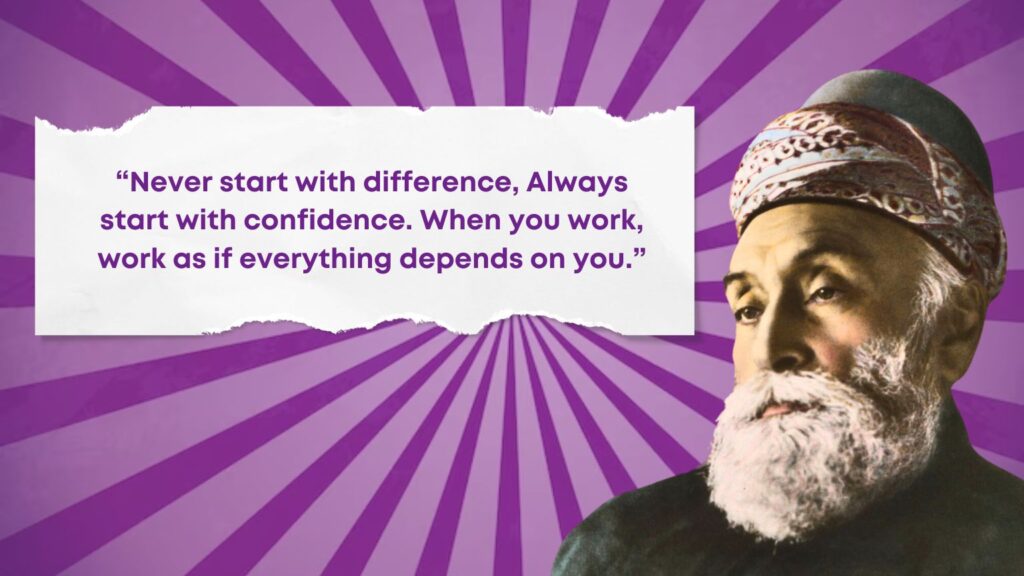
Similar to a chef who painstakingly makes a trademark dish, understanding that the final flavour depends on their talent and devotion, this saying exhorts us to approach every assignment with confidence and dedication. It is an exhortation to take action based only on the belief that one’s own efforts will determine the result.
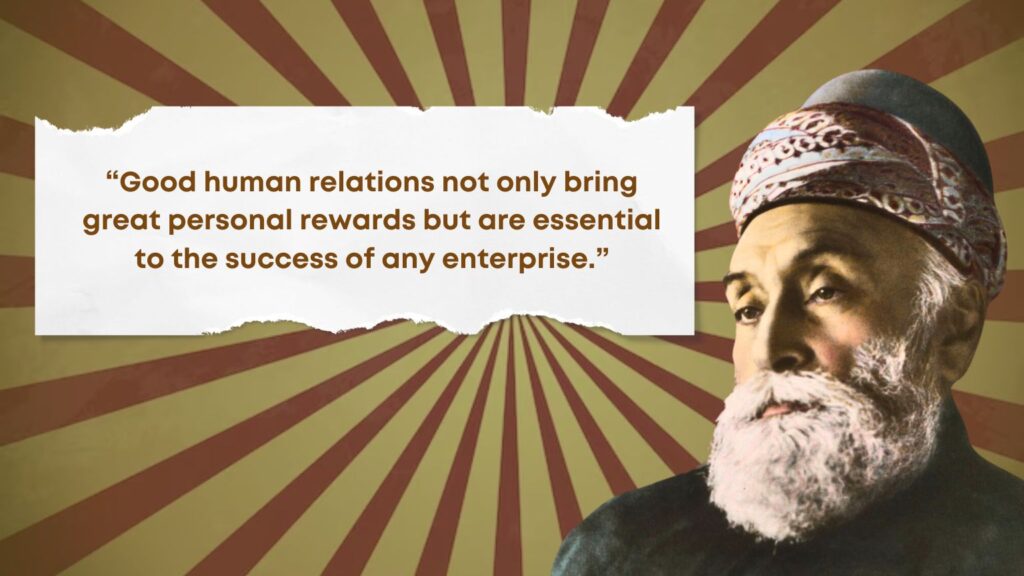
The quote underlines the significance of positive interpersonal relationships as a fundamental component of any successful endeavour. It’s like a sports team, where the rapport between players can be as crucial to winning a game as their individual skills; the trust and bond they share can drive them to achieve collective victory.

Leadership is an endeavour of the heart, as this saying emphasizes. Leadership is most successful and respected when it is applied with sincere concern and connection, much like a conductor’s relationship with his orchestra, when every note performed is imbued with shared passion and respect.

The remark comments on the difficulties of defining and attaining objectives. It’s comparable to a mountaineer trying to reach the summit without having the necessary equipment or a plan; a successful ascent requires not only ambition but also strategy and condition adaptation. It serves as a helpful reminder to make sensible goals and to carry them out.







